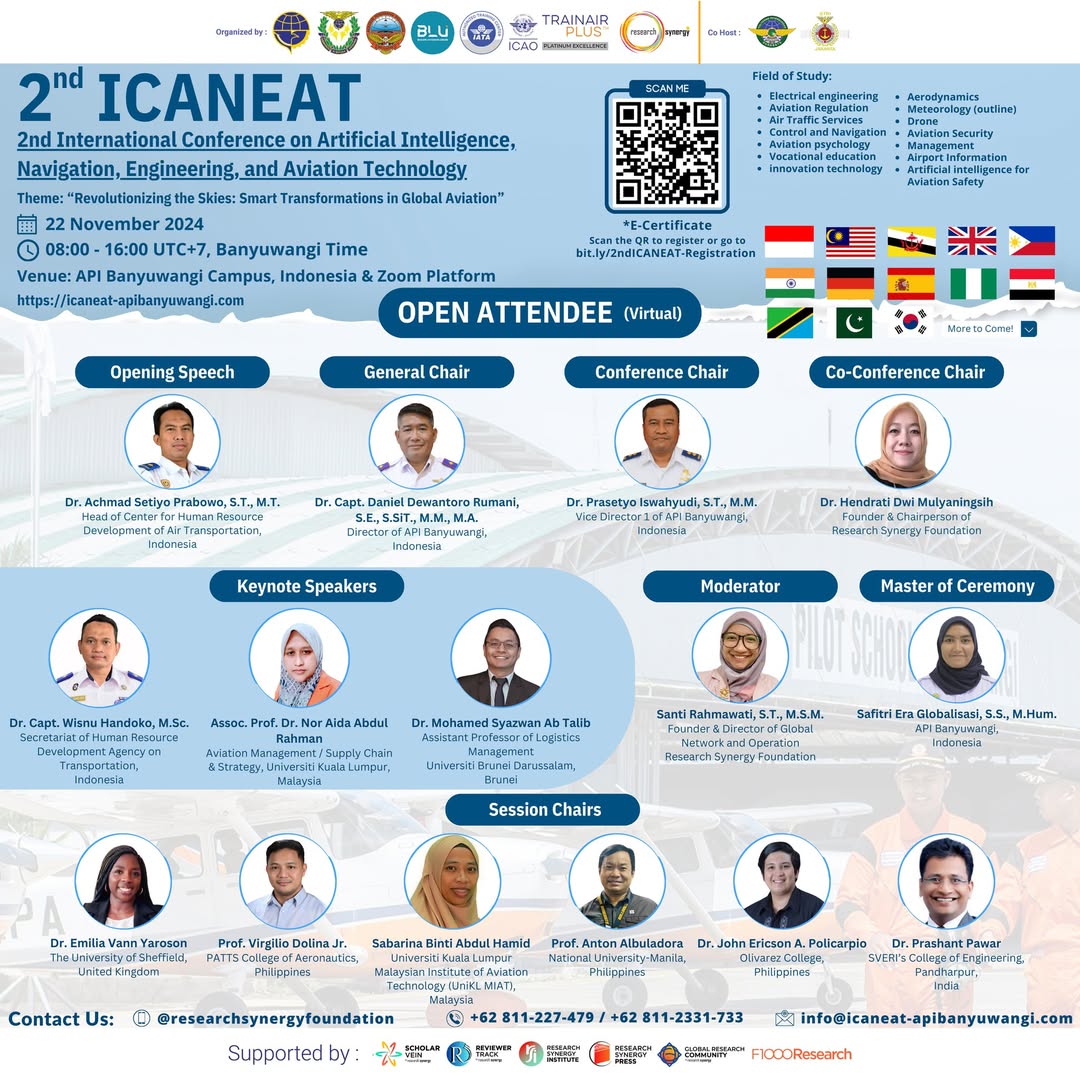The Role of Organizational Commitment in Mediating the Influence of Transformational Leadership on Employee Performance in the Office Medan Belawan Sub-district
Keywords:
Job Training, Job Ability, Employee PerformanceAbstract
This study aims to analyze the influence of transformational leadership on employee performance with organizational commitment as an intervening variable in the Medan Belawan Sub-district Office. This study uses a quantitative approach with a survey method through the distribution of questionnaires to 51 employees as respondents. The sample is determined by purposive sampling technique so that the data obtained is in accordance with the research objectives. The data was analyzed using path analysis techniques to determine the direct and indirect influence between variables. The results of the study show that transformational leadership has a positive and significant effect on organizational commitment. Organizational commitment also has a positive and significant effect on employee performance. Thus, organizational commitment plays a role as an intervening variable that mediates the influence of transformational leadership on employee performance. The results of this research are expected to be input for leaders in improving employee performance through the application of transformational leadership styles, as well as strengthening organizational commitment.
References
[1] Al Ghazali, S., & Mesra, B. (2024, June). The Influence of The Work Environment on Employee Performance at Bank Syariah Indonesia in The Medan Raya Area. In Proceedings of the International Conference on Multidisciplinary Science (INTISARI) (Vol. 1, No. 1, pp. 191-200).
[2] Fahrozi, H., Prasetyo, A., & Lestari, R. (2022). Job training and its impact on improving employee competencies. Journal of Human Resource Management, 10(2), 115–125.
[3] Fahrozi, M., Ramadhan, A., & Wahyuni, S. (2022). Job Training and Its Impact on Employee Performance. Journal of Human Resource Management, 10(1), 45–58.
[4] Fajrin, H., & Mesra, B. (2024, June). Improving Employee Performance Through Work Motivation. In Proceedings of the International Conference on Multidisciplinary Science (INTISARI) (Vol. 1, No. 1, pp. 331-341).
[5] Hair, J. F., Jr., Black, W. C., Babin, B. J., & Anderson, R. E. (2019). Multivariate data analysis (8th ed.). Cengage Learning.
[6] Indrawati, S., Rahma, N., & Sari, M. (2023). The Effect of Training on Employee Productivity in Government Agencies. Journal of Administration and Public Policy, 11(1), 22–31.
[7] Indrawati, T., Nugroho, B. S., & Syahputra, R. (2023). The effectiveness of job training on increasing employee productivity in the government sector. Journal of Administration and Public Policy, 11(3), 88–96.
[8] Kosdianti, L., Sunardi, D., & Ekonomi, F. (2021). The effect of training on employee performance at PT. Because it is a powerful tool in the city of Tangerang. Arastirma Journal, 1(1), 141-150.
[9] Mangkunegara, A. A. A. P. (2017). Corporate Human Resource Management. Bandung: PT Remaja Rosdakarya.
[10] Mangkunegara, A. A. A. P. (2017). Corporate human resource management (revised edition). Bandung: Remaja Rosdakarya.
[11] Nasution, A., & Siregar, R. (2023). The Effect of Job Training, Work Ability and Motivation on the Performance of Government Employees. Journal of Public Management Sciences, 11(1), 88–97.
[12] Nurhayati, D., & Susanto, H. (2021). Employability as a Mediating Variable between Training and Employee Performance. Journal of Economics and Management, 9(2), 33–42.
[13] Nurhayati, R., & Susanto, H. (2021). The role of work ability as a mediating variable in the relationship between training and employee performance. Journal of Applied Management Science, 5(2), 123–133.
[14] Prasetyo, D., & Hidayah, N. (2022). The Effect of Job Training on Employee Performance. Indonesian Journal of Management and Business Science, 12(3), 88–96.
[15] Prasetyo, D., & Hidayah, N. (2022). The effect of job training on improving employee performance. Journal of Economics and Management, 20(1), 35–42.
[16] Putra, R. W., & Supriyanto, S. (2021). Analysis of factors that affect employee performance in the public sector. Journal of Public Administration, 9(2), 75–84.
[17] Putra, W. T., & Supriyanto, A. S. (2021). Factors Affecting Employee Performance in the Public Sector. Journal of Management and Business Sciences, 8(2), 105–114.
[18] Ramadhan, F., & Pratama, Y. (2021). The Effect of Job Training on Employee Performance with Employability as a Mediating Variable. Journal of Public Administration, 9(2), 112–120.
[19] Sari, M., & Dewi, N. (2022). The role of employability in mediating the influence of training on employee performance. Journal of Human Resource Management, 10(1), 67–75.
[20] Sugiyono. (2022). Quantitative, qualitative and R&D research methods (3rd edition). Bandung: Alfabeta.
[21] Sugiyono. (2022). Quantitative, Qualitative, and R&D Research Methods. Bandung: Alfabeta.
[22] Wuwungan, M. B., Nelwan, O. S., & Uhing, Y. (2020). The influence of work ability and work motivation on employee performance. EMBA Journal: Journal of Economics, Management, Business and Accounting Research, 8(1).
[23] Yuliana, D., & Firmansyah, M. (2021). Employability and factors that affect it in the public organization. Journal of Psychology and Management, 6(2), 109–117.
[24] Yuliana, E., & Firmansyah, D. (2021). Workability: Concepts and Implementation in Organizations. Journal of Psychology and Human Resources, 6(1), 41–53.
Downloads
Published
Issue
Section
License
Copyright (c) 2025 Saiful Riza, Mesra B, Elfitra Desy Surya (Author)

This work is licensed under a Creative Commons Attribution-ShareAlike 4.0 International License.









